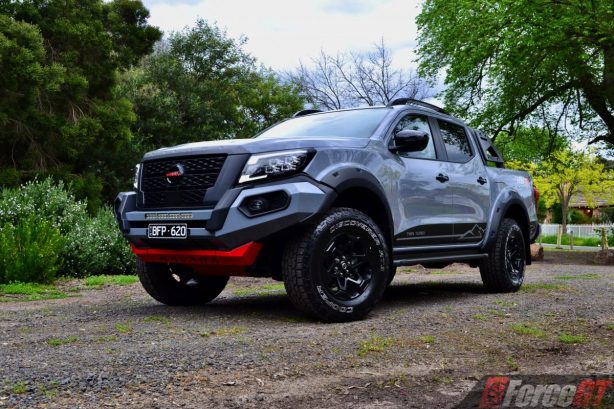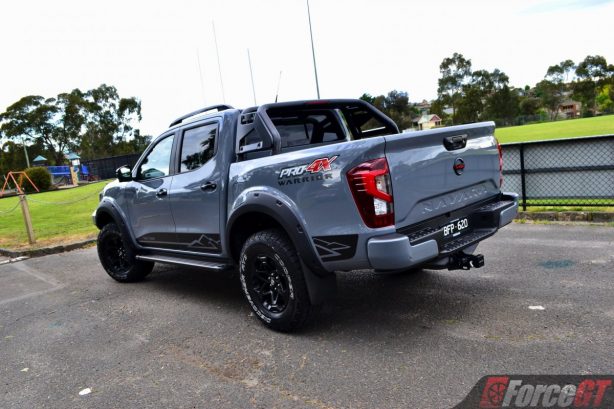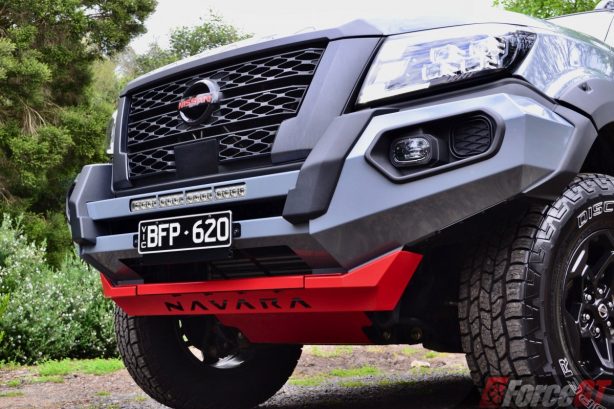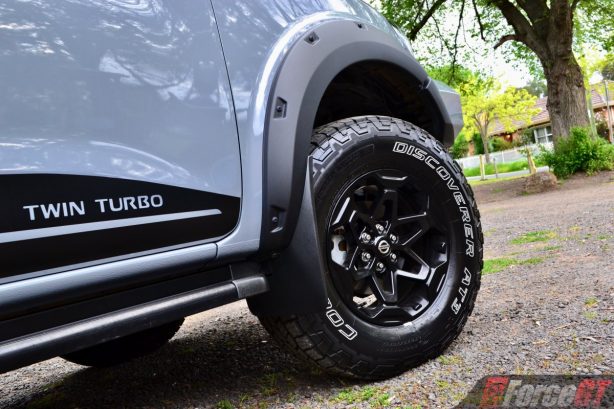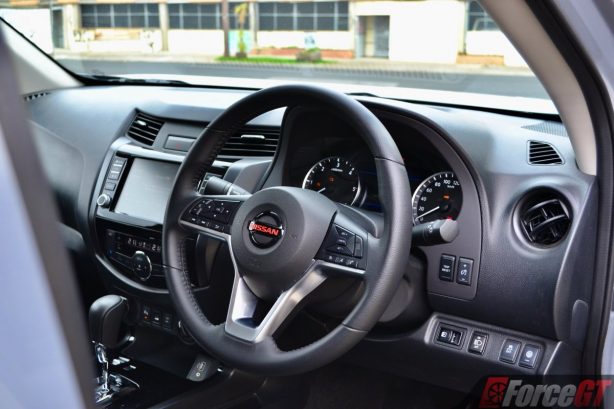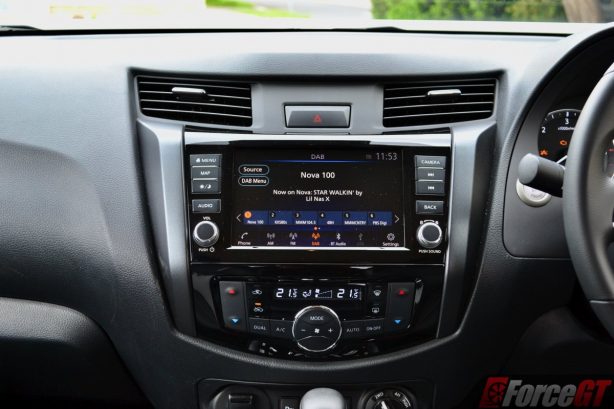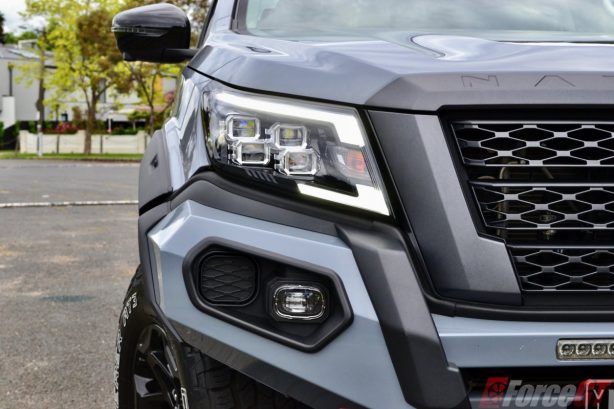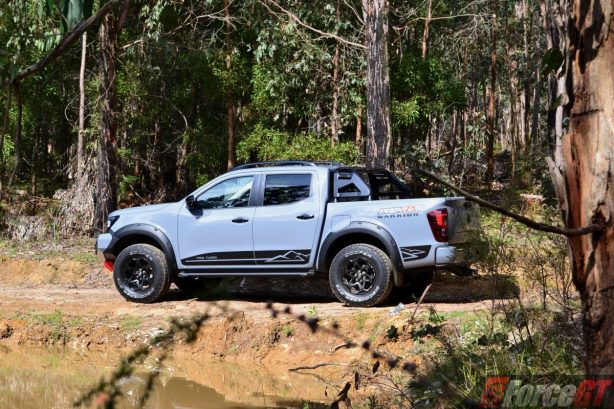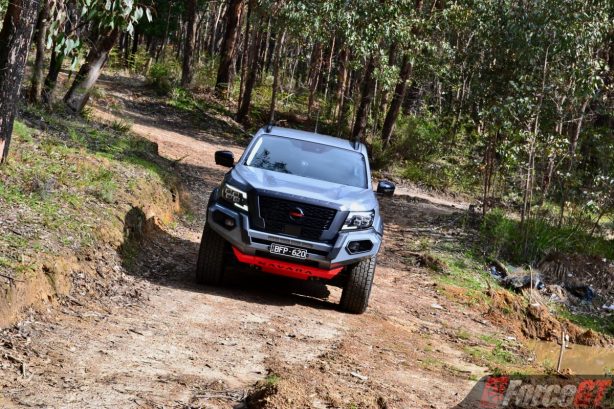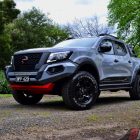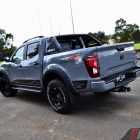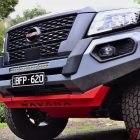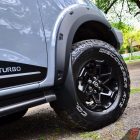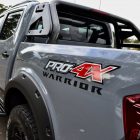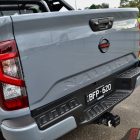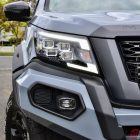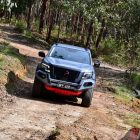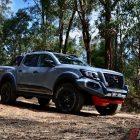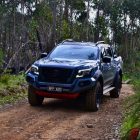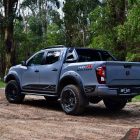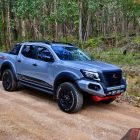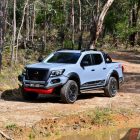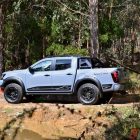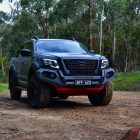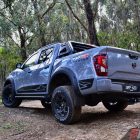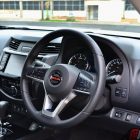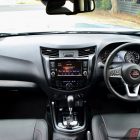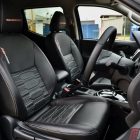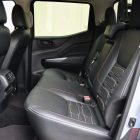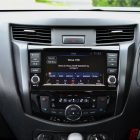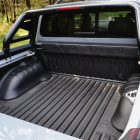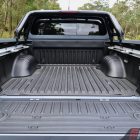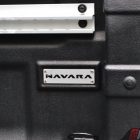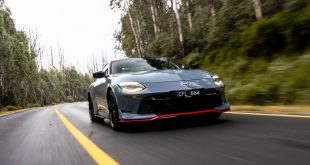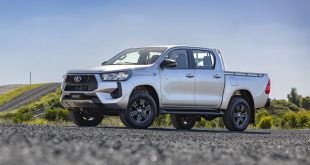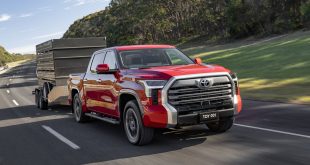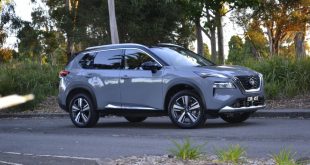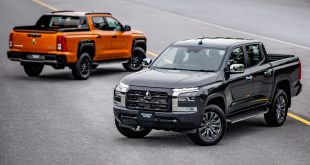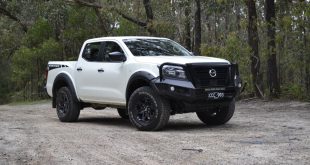The ute segment is arguably the most progressive of all vehicle markets. What started out as a workhorse has evolved to become a lifestyle machine. During the week it gets work done, and on weekends it goes out of town seeking for the best camping ground or fishing spot. Owners are increasingly demanding that their utes look good, come pack with features and ride comfortably.
As such, increasing number of buyers are willing to splash on range-topping, highly specified ute variants like the Toyota HiLux Rogue, Ford Ranger Wildtrack and Volkswagen Amarok Aventura. But lately even these tech-laden, luxuriously appointed ute models aren’t enough to satisfy the appetite of ute fans, especially those with very deep pockets. They want more, something fully kitted out with higher performance, something that stands out from the crowd.
Manufacturers get that and are more than happy to respond. The Nissan Navara PRO-4X Warrior is one such model. The adventurous name isn’t just for marketing sake, for it’s got the goods to back it up. The expertise behind the Warrior is by Australian company Premcar, a leading OEM partner with capability in special product development and engineering. The augmented Warrior certainly comes off as something quite special, one that’s distinguishable from the rest of the Navara range.
Priced at $69,990 plus on-road costs, the Warrior is about $7,000 dearer than the PRO-4X on which it is based, or a $10,000 premium over the ST-X, the range topper of the standard Navara line-up. It may seem like a significant hike from the lesser models, especially the ST-X, but Nissan is marketing the Warrior as a turnkey product that offers better value than aftermarket solutions, with the added bonus of factory-backed warranty.
Whether or not Nissan’s sales pitch is true depends on how much one is spending on aftermarket parts and the quality of those parts. But the Warrior’s list of enhancement is quite substantial, including a body colour-coded, Nissan Genuine winch-compatible, Safari-style bulbar with integrated light bar, a Warrrior-specific towbar, and a Navara branded red bash plate and a 3mm steel second-stage under body protection plate.
The suspension has been specifically revised for the Warrior for improved off-road capability, handling and ride comfort. There’re new spring rates for more front-end support and less body roll, along with revised front and rear damping for better compliance, improved isolation from impacts and reduced float when towing or carrying a load. The suspension jounce bumper is also larger and taller for better control of wheel movement and reduced transmission of bumps into the cabin.
The updated suspension increases ground clearance from 220mm to 260mm, and widens the track from 1,570mm to 1,600mm. Thanks to the new bulbar, approach angle has improved from 32 degrees to 36 degrees, with near-identical departure angle, from 19.8 degrees to 19 degrees
The ute rolls on larger tyres in the form of Cooper Discoverer All Terrain AT3 measuring 275/70/R17 all around. A full-sized spare tyre with alloy wheel stows underneath the ute.
Nissan has even gone the extra length to increase the GVM (Gross Vehicle Mass) by 100kg, now 3,250kg, meaning its near-tonne payload is mostly retained. Also intact is the towing capacity – 3,500kg braked and 750kg unbraked.
Befitting its flagship status, the Warrior is dressed up with Warrior-specific fender flares, decals, a black grille with red Nissan badging, black side mirror caps, black roof rails and black sports bar. It all adds up to one tough-looking ute that is sure to garner attention from 4×4 enthusiasts.
Compared to the beefed up exterior, the interior is much more ordinary. It’s pretty much a carried over of the PRO-4X cabin, save for some Warrior headrest embroidery. The black themed dashboard features black trim inserts in place of silver on the centre console, along with black Nissan emblem with red highlights on the steering wheel.
The seats are quilted in black leather with red stitching. They are comfortable yet supportive. Unlike those in the PRO-4X, the Warrior front seats have electric adjustment, though seat heating is still lacking. Finding a comfortable seating position isn’t hard, but it’d be even easier if the steering wheel had reach adjustment.
There’s decent space front and back, with good size storage under the front centre armrest, door pockets and glove box. Also unlike the PRO-4X, the Warrior’s rear seat bases can be flipped upwards for extra cabin storage.
One neat feature unique to the Navara is the power operated sliding rear window. Not only does it let in fresh air without the buffeting that you get when using the side windows, the opening is also useful if you carry your dog in the rear tub and need to communicate with it.
In terms of tech and connectivity, the Warrior includes a 7.0-inch driving instrument cluster display complimenting conventional gauges and a relatively user-friendly 8.0-inch touchscreen centre display with Apple CarPlay and Android Auto connectivity, digital radio DAB+ and Bluetooth. A 6-speaker sound system will play your favourite tunes with decent quality.
Safety is taken care of by Forward Collision Warning, Automatic Emergency Braking, Driver Alertness, Lane Departure Warning, Lane Intervention, Blind Spot Warning and Intervention, 360-degree Around View Monitor, including an Off-Road Monitor, and Rear Cross Traffic Alert.
Disappointingly, the Warrior is missing adaptive cruise control and speed sign recognition, features that are now standard in almost all range-topping utes.
For folks wishing for more power in the Warrior, they’ll need help from aftermarket. The Warrior is powered by the same 2.3-litre intercooled twin-turbo diesel engine that propels all 4×4 Navara variants. The engine might not be the smoothest and most refined oiler in the segment, but it sure is dependable thanks to a healthy 140kW and 450Nm, the latter peaks between 1,500rpm and 2,500rpm.
Hooked to a seven-speed automatic transmission as fitted to our test car (6-speed manual is also available), the diesel mill feels like it’s got enough to haul the 2.3-tonne Warrior around town and on the freeway. Fully laden or when towing though, it might just feel a little out of puff at the top end of the rev range but it’s never bogged down.
Featuring a coil spring rear suspension instead of the more common leaf spring set up, the Navara is one of the most comfortable utes around, and the Warrior is no exception. Despite all the off-road focused tweaks to the suspension and chassis, the Warrior managed to maintain the suppleness and compliance that the standard Navara is so well known for. On or off road, the Warrior’s ride is never jittery, even with an empty tub. The handling is neat, too, with the ute maintaining good body control around bends.
The Warrior’s 4WD system is inherited from the standard 4×4 Navara. It has a dual-range transfer case that allows drivers to switch between 2WD (two-wheel drive), 4H (4WD high-range) and 4Lo (4WD low-range) drive modes via a dial in the console. The 4WD system is backed by a lockable rear differential and hill descent control.
The 4WD system is a solid piece of kit, delivering good traction over a diverse range of rough terrain. But it is those Warrior specific modifications that truly take the ute’s off-road performance to the next level. The higher ground clearance, greater approach angle, tweaked suspension, added under body protection and larger all-terrain tyres combine to make a substantial difference to the Warrior’s bush-bashing ability. With those upgrades, the Warrior is better at extracting the most from the 4WD system. Tackling rougher, more challenging terrains is just easier in the Warrior than a regular Navara.
Long distance drivers will appreciate the thriftiness of the twin-turbo diesel on the freeway, where it zips around 7.2L/100km. It isn’t too shabby around town, either, hovering at around 10.2L/100km. At the end of the tests, the Warrior averaged 9.8L/100km, with a mostly unladen tub and a good mix of urban and country driving. This is against a factory rated 8.1L/100km.
It has a long service interval, only requiring a visit to the dealer every 20,000km or 12 months, whichever comes first.
The warranty period is 5 years with no cap on kilometres. A complementary roadside assist of 5 years is included as well.
Verdict
Design & Comfort
Performance & Handling
Quality
Economy
Equipment & Features
OUR SCORE
4.0/5
+ Plus
- Tough looks
- Increased off-road performance
- Capable powertrain
- Admirable ride comfort
– Minus
- Lacks adaptive crusie control
- Dated cabin
Overall
The Nissan Navara PRO-4X Warrior is kind of in a sweet spot of the uprated ute segment. It doesn’t have a huge price tag like some of the other flagship utes do. It’s very much off-road ready straight from the factory, without compromise in towing capacity and payload. It’s sized right – not too big nor too small. And appearance wise it’s distinguishable enough from the rest of the Navara range.
It’s a fine example of taking an already good ute and simply making it better with all the right upgrades. While it doesn’t push any boundaries, it sure does exactly what you ask of it, both on and off road.
2023 Nissan Navara PRO-4x Warrior Pricing and Specification
| Price (excl. on-roads) | From: $69,990 |
| Warranty | 5 years / unlimited km |
| Warranty Customer Assistance | 5 years roadside assist |
| Country of Origin | Japan (built in Thailand) |
| Service Intervals | 12 months/20,000km |
| Engine | 2.3-litre four-cylinder common-rail direct-injection twin-turbo diesel: 140kW @ 3,750rpm, 450Nm @ 1,500-2,500rpm |
| Transmission | 6-speed manual / 7-speed automatic (tested) |
| Drivetrain | Four-wheel drive |
| Power to Weight Ratio (W/kg) | 60.9 |
| 0-100km/h (seconds): | N/A |
| Combined Fuel Consumption (L/100km) | Claimed: 7.5 (manual) / 8.1 (automatic) Tested: 9.8 (automatic) |
| RON Rating | N/A |
| Fuel Capacity (L) | 80 |
| Body | Dual Cab Pickup, 5-seats |
| Safety | 5-star ANCAP, 7 airbags, ABS, EBD, BA, VSC, Hill Descent Control (HDC), Hill Start Assist (HSA), Active Brake Limited Slip (ABLS), 360-degree camera |
| Dimensions (L/W/H/W-B) mm | 5,350/1,920/1,895/3,150 |
| Kerb Weight (kg) | 2,289 (manual) / 2,298 (automatic) |
| Payload (kg) | 961 (manual) / 952kg (automatic) |
| Turning circle between kerbs | 12.5 |
| Ground Clearance: | 260 |
| Wading Depth: | 600 |
| Approach Angle: | 36 |
| Departure Angle: | 19 |
| Breakover Angle: | 26.2 |
| Towing Capacity (kg): | Braked: 3,500/ Unbraked: 750 |
| Entertainment | 8.0-inch touchstreen infotainment system, satellite navigation, Bluetooth, USB, AUX, CD, AM/FM, six-speaker stereo, Apple CarPlay, Android Auto |
 ForceGT.com Car News, Car Reviews, Video Reviews, Tuning and much more.
ForceGT.com Car News, Car Reviews, Video Reviews, Tuning and much more. 